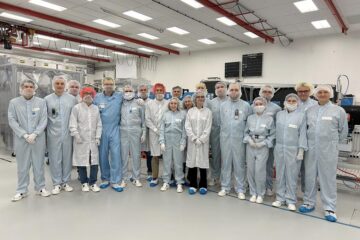Rest And Relaxation May Not Be Good For Chronic Fatigue Syndrome

Chronic fatigue syndrome (CFS) is characterised by severe fatigue lasting for at least 6 months, for which no somatic explanation can be found and which leads to severe disability in daily life. It has been demonstrated that individual cognitive behaviour therapy is an effective treatment for chronic fatigue syndrome (CFS). The aim of the study presented in the July-August issue of Psychother Psychosom was to investigate the effectiveness of cognitive behaviour group therapy (CBGT) in an unselected group of CFS patients.
Additionally, pretreatment characteristics of CFS patients who improve after CBGT were explored. In a non-randomised waiting list controlled design, 31 patients were allocated to CBGT and 36 to the waiting list condition. CBGT consisted of 12 two-hour sessions during 6 months. Main outcome measures were fatigue (Checklist Individual Strength) and functional impairment (Sickness Impact Profile).
A moderate effect on fatigue in favour of CBGT was found. For functional impairment, the effect was opposite to what was expected. Patients who improved after CBGT had less complaints at baseline compared to patients who did not improve. An explanation for the moderate effect might be that during CBGT, rest and relaxation were too much emphasised. Furthermore, an unselected group of CFS patients and therapists inexperienced in CB(G)T for CFS participated. Suggestions to improve CBGT for future research are given.
Media Contact
More Information:
http://www.karger.comAll latest news from the category: Health and Medicine
This subject area encompasses research and studies in the field of human medicine.
Among the wide-ranging list of topics covered here are anesthesiology, anatomy, surgery, human genetics, hygiene and environmental medicine, internal medicine, neurology, pharmacology, physiology, urology and dental medicine.
Newest articles

Cost-effective, high-capacity, and cyclable lithium-ion battery cathodes
Charge-recharge cycling of lithium-superrich iron oxide, a cost-effective and high-capacity cathode for new-generation lithium-ion batteries, can be greatly improved by doping with readily available mineral elements. The energy capacity and…

New regulator of eating behaviour identified
The rapidly escalating prevalence of overweight and obesity poses a significant medical challenge worldwide. In addition to people’s changing lifestyles, genetic factors also play a key role in the development…

Harnessing Machine Learning for Breakthroughs with High-Power Lasers
A team of international scientists from Lawrence Livermore National Laboratory (LLNL), Fraunhofer Institute for Laser Technology ILT, and the Extreme Light Infrastructure (ELI) collaborated on an experiment to optimise high-intensity…





















